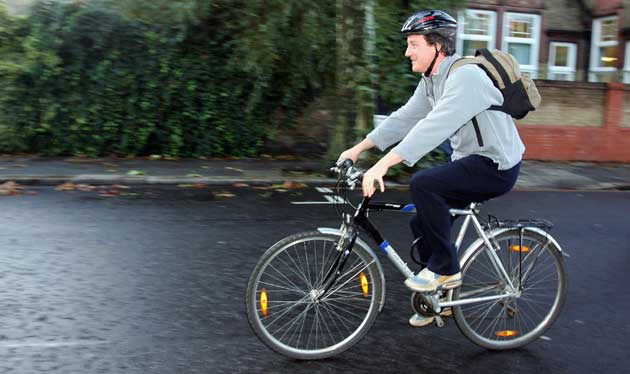Nature Studies: No, it wasn’t the 'greenest ever', but the last government can hold its head high
A look at the Coalition's record reveals a range of environmental highs and lows

Now that the major parties have published their manifestos for the forthcoming election, we can start to examine how the environment might fare over the next five years.
Climate change – the first thing many think of – has hardly been mentioned on the campaign trail so far. But it’s quite as bad as it sounds: such silence may have more to do with the fact that little tells them apart. The Conservatives, Lib Dems and Labour signed a joint pledge in February agreeing to work together – as unusual as it sounds – on pushing a legally-binding climate global climate deal, cutting UK emissions, and phasing out coal power.
But promises are one thing, and deeds are another; so let us look over the environmental record of the coalition Government just gone.
Its outstanding success has been action on global warming: the passing of the fourth carbon budget, which commits the UK to the toughest regime for cutting carbon emissions in the world. We should note at once, however, this was in essence a Liberal Democrat achievement, brought about by two Lib Dem Secretaries of State for Energy and Climate Change, Chris Huhne (who was outstanding) and Ed Davey (who has been pretty competent); and let us also note that it followed on naturally from the Climate Change Act 2008, which itself was an achievement of the previous Labour administration, brought to birth by another outstanding Secretary of State, David Miliband.
If we want to be fair to the Conservative side of the coalition, though, it has to be admitted that the Prime Minister, David Cameron, has personally protected these climate measures from the entrenched hostility of the Chancellor, George Osborne (whose father-in-law, Lord Howell, is a noted climate-sceptic); and his promise that he would preside over “the greenest government ever” was made specifically in the context of action to cut emissions of CO2.
In other areas, however, the Conservatives who have dominated the Department for Environment, Food and Rural Affairs (Defra) have been most notable for the rows they have provoked with people who care about the natural world.
Five contentious initiatives spring to mind at once: the proposal to sell off the public forest estate (abandoned after an outcry); the proposal to destroy the nests of buzzards because they were eating too many pheasants on shooting estates (ditto); George Osborne’s attempt to water down the EU’s environment protection laws (headed off by the first Tory Environment Secretary, Caroline Spelman); the cull of badgers on the grounds that they were infecting cattle with bovine TB (which is continuing); and the enthusiasm for fracking, the new and potentially environmentally-damaging way of producing oil and gas (continuing too.)
All this altercation seemed to come to a head in the person of the second Tory Environment Secretary, the confrontational Owen Paterson, who was sacked by Mr Cameron last summer, and blamed his demise on the nexus of environment groups and interests which he characterised unforgettably as “the green blob”.
Paterson’s loud clashes with the said blob are what still resonates in the Tory green record; but perhaps it should be recorded here that Caroline Spelman his predecessor, Defra Secretary from 2010-2012, seemed to have her heart in the right place, environmentally.
Spelman eventually got the chop (partly because she had to take the blame for the forests sell-off fiasco, when the real culprit was the cold-eyed zealot in the Cabinet Office, Francis Maude). But on her watch she enthusiastically brought forth the Environment White Paper (long on ambition if short on practicalities), the UK National Ecosystem Assessment, and the England Biodiversity Strategy; and she played a significant role in framing the biodiversity strategy for the world – ie the plan to halt the global destruction of habitats and species – which was agreed at Nagoya in Japan, in 2010.
The public recalls none of that. Politics is a cruel game, indeed. But if you’re looking back over the Coalition’s environmental record, it consists not just of the Lib Dems building climate policy on a Labour base, or Owen Paterson’s noisy confrontations; it also contains Caroline Spelman’s successful moves to help shore up the natural world against the myriad threats pressing upon it; and that was of real worth, and should be remembered.
Join our commenting forum
Join thought-provoking conversations, follow other Independent readers and see their replies
Comments
Bookmark popover
Removed from bookmarks